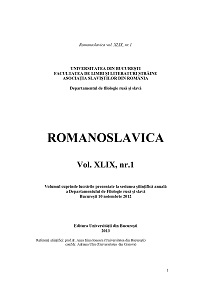Využitie internacionalizačných procesov pri výučbe slovenského jazyka pre cudzincov (na príklade vzťahu slovenčina – rumunčina)
The use of internationalization processes in the teaching of the Slovak language for foreigners (on the example of the relationship between Slovak and Romanian)
Author(s): Lenka GarančovskáSubject(s): Foreign languages learning, Phonetics / Phonology, Language acquisition, Western Slavic Languages, Philology
Published by: Editura Universităţii din Bucureşti
Keywords: motivation; foreign languages; internationalisation processes; Slovak; Romanian; identical orthographic and phonetic form; partial orthographic and phonetic form;
Summary/Abstract: Motivation is one of the most important parts within the process of teaching foreign languages. Only motivated students can be successful in learning a foreign language. Every teacher faces a big challenge to find the right path - a path at the end of which stands a student with appropriate motivation. When teaching foreign languages at the basic level, the motivational phase is of crucial importance. Internationalisms represent one of the useful ways to show students that they can understand many words despite the fact they never learned them before. This article focuses on the problem of making use of internationalisation processes in teaching Slovak language to foreigners (based on the example of Slovak and Romanian). It also stresses several words, which are understood incorrectly based on an identical orthographic and/or phonetic form of Slovak and Romanian expressions.
Journal: Romanoslavica
- Issue Year: XLIX/2013
- Issue No: 1
- Page Range: 68-77
- Page Count: 10
- Language: Slovak

